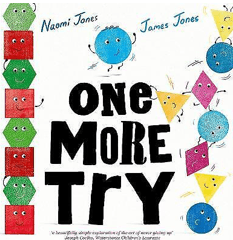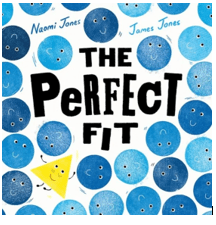Maths
'The only way to learn mathematics is to do mathematics'
Paul Halmos
Maths progression document
Our maths calculation policy
Maths at Aspin Park Academy equips pupils with a uniquely powerful set of tools to understand and change the world. These tools include logical reasoning, problem solving skills and the ability to think in abstract ways. It is important in everyday life, allowing us to make sense of the world around us, being able to count, calculate and measure and understand time, money and shape.
The Primary Curriculum (2014) highlights the importance of integrating using and applying of maths through the subject itself and other curriculum areas. It is therefore important that some Mathematics will be taught outside of the maths session.
Pedagogical Approach
We use White Rose planning, which focuses on building a culture of deep understanding, confidence and competence in maths through fluency, problem solving and reasoning. Children are exposed to new mathematical vocabulary and opportunities to reason and explain.
We develop maths skills through: visible modelling, questioning, teaching in small steps and opportunities for reasoning and problem solving. The small steps are taught through a concrete, pictorial and abstract approach to build children's understanding of the relationship between numbers and the real world. Modelling is a key part of our maths lessons where we teach mathematical vocabulary and reasoning language to enable children to become creative thinkers and to choose strategies to solve mathematical problems.
At the end of every unit the children consolidate their maths skills by solving an investigation to enable them to use taught skills in different contexts.
"I like when we play a maths warm up because it helps me get ready for the lesson"
Our Intent
Our key aims are:
-
To enable each pupil to develop within their capabilities, not only the mathematical skills and understanding required for later life, but also an enthusiasm and fascination about maths itself, and have a positive approach to the subject.
-
To develop confidence in maths calculations, the use of logical thinking and use of mathematical language and transfer these skills to other subjects.
-
To develop a range of mental and written strategies which can be used with speed and accuracy and see the links that can be made through different areas of mathematics
Our Implementation
At Aspin, we follow the National Curriculum (2014) and Early Years Foundation Stage Framework (September 2021). From EYFS to Year Six, White Rose planning is used to support teaching in order to have clear progression and coverage across each year group.
In EYFS and Year 1, mathematics is an integral part of focus activities and provision areas, both indoors and out. Aspin Park encourages the adoption of a daily maths session of between 45 and 60 minutes from Term 2 in Year 1. The session will usually begin with a mental oral starter of approximately 10 minutes, which may include recapping work covered previously, practising concepts to be developed during the main teaching session or practise of KIRFs (Key Instant Recall Facts).
The main teaching time may comprise of direct teaching to the whole class; group, pair or individual work; or a combination of both. A mastery approach is used, where teaching is aimed at ARE (Age Related Expectations) for that year group.
"In maths lessons, I like counting because it is a good skill to learn"
Our lesson structure follows 4 key learning steps:
KIRFs (Key Instant Recall Facts) we begin every lesson with an active starter where all children are involved
Recap previous learning to address previous misconceptions and assess understanding
Learning we model new skills, including efficient and accurate methods, ask key questions and explain and introduce new vocabulary. We include relevant problem-solving opportunities and model and use both verbal and written reasoning skills to explore and explain concepts.
Opportunities to explore objectives at greater depth are taught throughout our teaching with additional challenges where appropriate. Children are encouraged to work collaboratively at times, through the use of talk partners and group work to help further their thinking and develop skills for working with different people.
"Maths helps you know about numbers and then when you grow up you can teach your children too"
Our Impact
The impact of our maths approach is thoroughly monitored throughout the year. White Rose block assessments are used before a block is taught (pre-assessment) and after a unit of work is completed, with a delay of at least a week to assess retainment. This allows staff to plan the unit of work to best meet the needs of the class group and put in any support if needed.
Children carry out Rising Star PUMA tests (previous SATs tests in Y2 and Y6) in order to track progress in Autumn, Spring and Summer. Standardised scores are then discussed at a Pupil Data Meeting with a member of Senior Leadership. Any children not meeting ARE are discussed and interventions or support systems put in place. Progress is also discussed with parents at three structured conversations throughout the year as well as three written reports which include current level of progress towards ARE and a maths target. We also moderate across the year groups and age phases and across other schools in the Elevate MAT.
Also:
- In the Early Years Foundation Stage, the EYFS Profile may comment on children’s early progress in maths in preparation for entering KS1.
- Formal SATs tests are taken by Year 6 in May of each year and results are reported to the Local Authority. Children sit an arithmetic paper and two reasoning papers.
|
|
KIRFs (Key Instant Recall Facts)
We use our KIRF progression chart to develop quick recall of maths facts such as times tables and number bonds. These are vital when children begin to use written methods to solve calculations using addition, subtraction, multiplication and division.
Our postcards outline the KIRFs in each year group and how to support at home
Classroom Environment
Every classroom has a working wall to display and support current Maths learning. They may show: useful vocabulary; concrete, pictorial and abstract representations; resources and how to use them; steps for working through a problem; a challenge; an example and links to other maths skills.
Informing Parents
KIRF information is sent to parents every half term outlining the KIRF their child is learning and how to support them. Structured conversations and termly reports also keep parents informed as to how their child is doing in their maths work.
Maths through books
There are many fantastic books available to help your child with maths, through stories. Here are some examples which you may enjoy together:
KS1

































